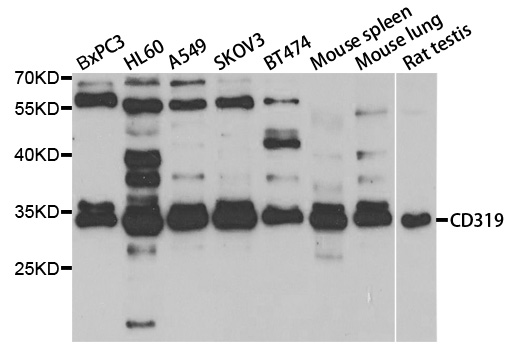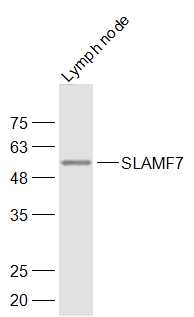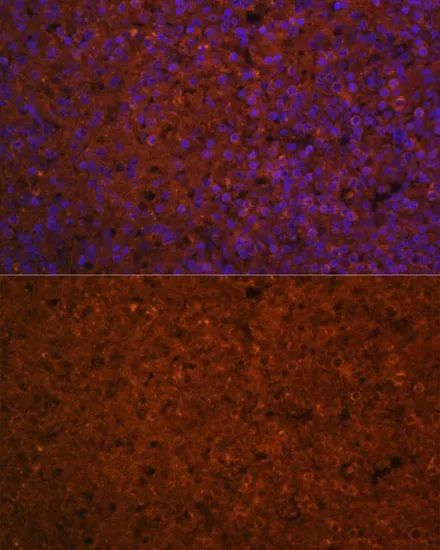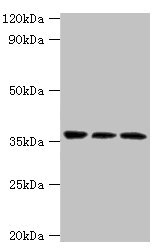SLAMF7 Polyclonal Antibody
RD83500A
ApplicationsImmunoFluorescence
Product group Antibodies
ReactivityHuman, Mouse, Rat
TargetSLAMF7
Overview
- SupplierReddot Biotech
- Product NameSLAMF7 Polyclonal Antibody
- Delivery Days Customer5
- ApplicationsImmunoFluorescence
- CertificationResearch Use Only
- Concentration1 mg/ml
- ConjugateUnconjugated
- Gene ID57823
- Target nameSLAMF7
- Target descriptionSLAM family member 7
- Target synonyms19A, CD319, CRACC, CS1, SLAM family member 7, 19A24 protein, CD2 subset 1, CD2-like receptor activating cytotoxic cells, membrane protein FOAP-12, novel LY9 (lymphocyte antigen 9) like protein, protein 19A
- HostRabbit
- IsotypeIgG
- Scientific DescriptionSelf-ligand receptor of the signaling lymphocytic activation molecule (SLAM) family. SLAM receptors triggered by homo- or heterotypic cell-cell interactions are modulating the activation and differentiation of a wide variety of immune cells and thus are involved in the regulation and interconnection of both innate and adaptive immune response. Activities are controlled by presence or absence of small cytoplasmic adapter proteins, SH2D1A/SAP and/or SH2D1B/EAT-2. Isoform1mediates NK cell activation through a SH2D1A-independent extracellular signal-regulated ERK-mediated pathway (PubMed:11698418). Positively regulates NK cell functions by a mechanism dependent on phosphorylated SH2D1B. Downstream signaling implicates PLCG1, PLCG2 and PI3K (PubMed:16339536). In addition to heterotypic NK cells-target cells interactions also homotypic interactions between NK cells may contribute to activation. However, in the absence of SH2D1B, inhibits NK cell function. Acts also inhibitory in T-cells (By similarity). May play a role in lymphocyte adhesion (PubMed:11802771). In LPS-activated monocytes negatively regulates production of proinflammatory cytokines (PubMed:23695528).
- ReactivityHuman, Mouse, Rat
- Storage Instruction-20°C
- UNSPSC12352203






